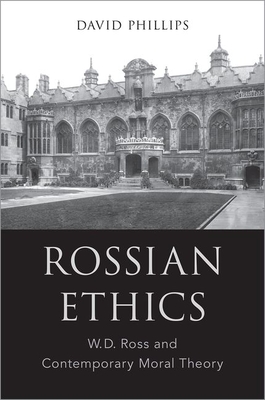

 Oxford University Press, USA
Oxford University Press, USA
Rossian Ethics: W.D. Ross and Contemporary Moral Theory


Key Metrics
- David Phillips
- Oxford University Press, USA
- Hardcover
- 9780190602185
- 8.4 X 5.8 X 1 inches
- 0.8 pounds
- Philosophy > Ethics & Moral Philosophy
- English
 Secure Transaction
Secure TransactionBook Description
The book has two connected aims. The first is to interpret and evaluate Ross's moral theory, focusing on its three key elements: his introduction of the concept of prima facie duty, his limited pluralism about the right, and his limited pluralism about the good. The metaethical and epistemological framework within which Ross develops his moral theory is the subject of the fifth and final chapter of the book.
The second aim is to articulate a distinctive view intermediate between consequentialism and absolutist deontology, which Phillips calls classical deontology. According to classical deontology the most fundamental normative principles are principles of prima facie duty, principles which specify general kinds of reasons. Consequentialists are right to think that reasons always derive from goods; ideal utilitarians are right, contra hedonistic utilitarians, to think that there are a small number of distinct kinds of intrinsic goods. But consequentialists are wrong to think that all reasons have the same weight for all agents. Instead there are a small number of distinct kinds of agent-relative intensifiers: features that increase the importance of certain goods for certain agents. Phillips claims that classical deontology combines the best elements of the moral theories of Ross and of Sidgwick, ultimately arguing that Ross is best interpreted as a classical deontologist.
Videos
No Videos
Community reviews
Write a ReviewNo Community reviews